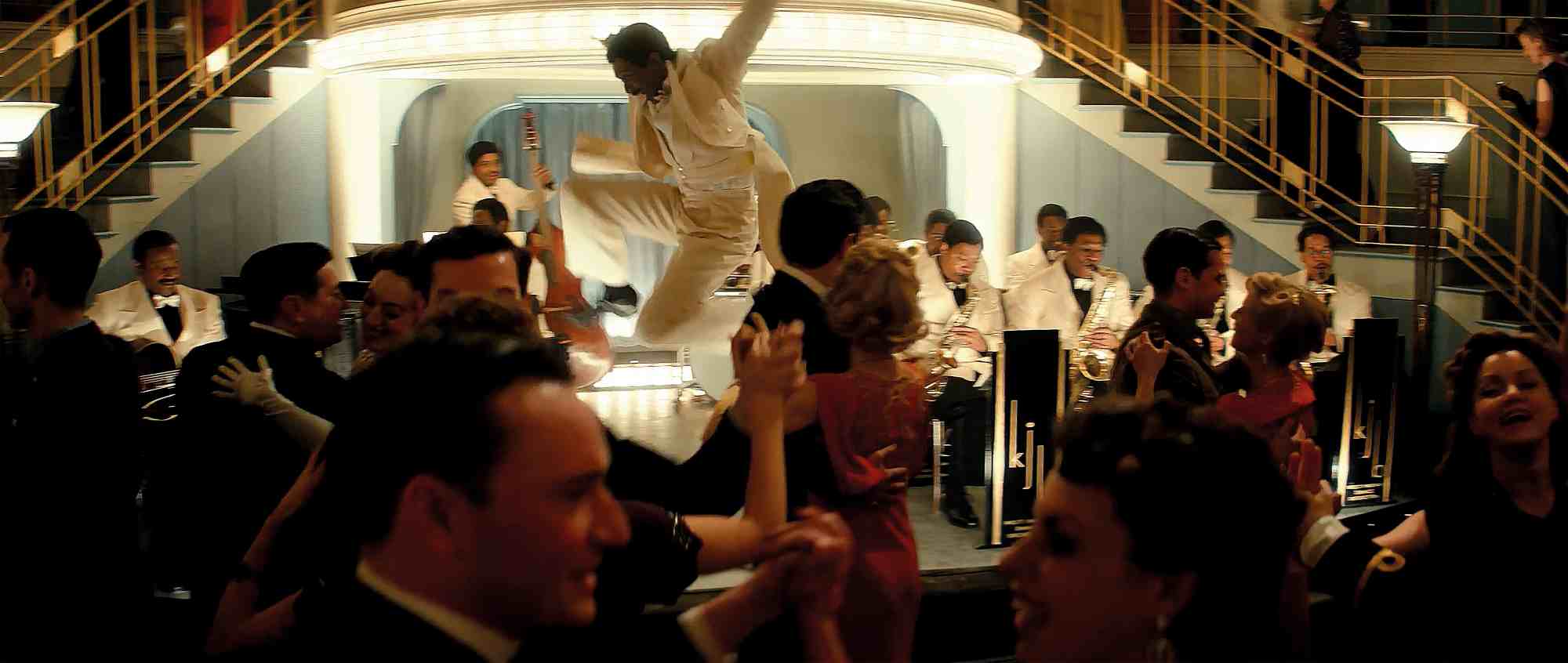'Astonishing': Lord Stevenson reviews 'Blitz'
Blitz: Saoirse Ronan as Rita and Elliott Heffernan as George | Image courtesy of AppleTV+
Lord Stevenson of Balmacara
3 min read
A visceral portrayal of people enduring the horrors of nightly bombing, Steve McQueen’s superb film calls out to be seen on a big screen
Introducing the world premiere of his film Blitz at the opening night of the London Film Festival last month, Sir Steve McQueen said that one of his aims was to understand better how ordinary people coped with the horrors of the nightly bombing of London in the 1940s. As we have come to expect from him, this is a film buzzing with ideas about the complexity of our engagement with our fellow citizens – but it’s a theme that rightly dominates.
Cinema is the only artform which can convince audiences that they are physically present at historic events: so, filmmakers can tell stories which confront what we think we know about our history. Blitz strips away the romantic narrative of warm-hearted white English East Enders pulling together and pluckily surviving the worst that Hitler could throw at us.
McQueen’s film shows how ethnically diverse London actually was at that time; how social and racial tensions were rife; and how an underclass used the damage and destruction of the bombing to rob corpses, and to burgle that night’s bombed-out nightclubs, shops and houses. We also pick up little-known facts such as the absurd initial restrictions on the use of the Underground during the raids.
 Ken ‘Snakehips’ Johnson performs at the Café de Paris | Image by: LANDMARK MEDIA / Alamy Stock Photo
Ken ‘Snakehips’ Johnson performs at the Café de Paris | Image by: LANDMARK MEDIA / Alamy Stock Photo
The main characters are Rita (Saoirse Ronan), an unmarried mother and munitions worker, and her young son, George (Elliott Heffernan). They live with her father (played by Paul Weller); her partner – a Grenadian national – has been deported. At the start of the film, Rita has decided to keep George with her but as the bombing increases in intensity, she is persuaded to evacuate him to the countryside. George takes this badly, jumps off his train, and the main thrust of the narrative is his various encounters as he makes his way back to his mother.
It also calls our attention to what others must be currently suffering
In parallel, we follow Rita’s growing concerns about George and his whereabouts, while she and her neighbours adapt to the continuing devastation. Ronan is well-cast, and we empathise with her as she realises how much George must be suffering on the run. Heffernan doesn’t have much dialogue, but the camera loves him and, as he struggles to get back to Stepney, we know almost instinctively what he is feeling, without the need for words.
 This is a film that calls out to be seen on a big screen. The special effects are superb: 1940s Stepney is gradually reduced by the constant bombing before our eyes; and the nightly bombings and the recreation of the disaster in London Bridge Tube station has visceral impact. The external crowd scenes, with reworked stock footage, are astonishing. And the score by Hans Zimmer is one of his best, with some of the fluid transitions into popular songs and dance numbers reminiscent of Terence Davies’ film Distant Voices, Still Lives.
This is a film that calls out to be seen on a big screen. The special effects are superb: 1940s Stepney is gradually reduced by the constant bombing before our eyes; and the nightly bombings and the recreation of the disaster in London Bridge Tube station has visceral impact. The external crowd scenes, with reworked stock footage, are astonishing. And the score by Hans Zimmer is one of his best, with some of the fluid transitions into popular songs and dance numbers reminiscent of Terence Davies’ film Distant Voices, Still Lives.
Blitz deals with big issues about our society and successfully casts a different light on how ordinary Londoners coped with the devastation of 1940. And it also calls our attention to what others must be currently suffering.
Lord Stevenson of Balmacara is Labour peer and former director of the BFI – he was a guest of the BFI at the opening gala of the London Film Festival
Blitz
Directed by: Steve McQueen
Venue: General cinema release
